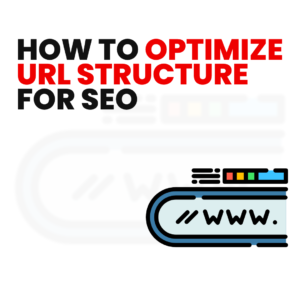MarTech, which stands for “marketing technology,” is now an important part of businesses’ operations, including those in Nigeria. It would be too much to handle to keep track of all your customers, send marketing emails, and run your social media accounts by hand. That is why MarTech is vital. It makes all these jobs easier and more efficient for businesses. In this article, we will talk about the different types of marketing technology that you can use in Nigeria to stay ahead of the competition.

1. Customer Relationship Management (CRM) Systems
A Customer Relationship Management (CRM) system helps you track how they talk to your customers. Think of it as an extensive digital notebook where you keep all the vital customer information. Names, contact information, past purchases, and interactions are stored in this system. Businesses can better service their customers if they have all this information in one place.
Key features of CRM systems
Many CRM system features are meant to make managing customer relationships easy. Some of the most important traits are:
- Contact management features help businesses keep track of all the information they need about each customer in one place.
- With the help of sales automation, businesses can manage their sales processes, track leads, and follow up with potential customers.
- Customer service features help you handle customer support requests and problems, ensuring they get the help they need quickly.
- Analytics features of CRM systems give businesses information about how customers act and how well their sales are doing, which helps them make better choices.
Salesforce, HubSpot, and Zoho CRM are well-known CRM tools. Businesses use these tools to better communicate with their customers and run more smoothly.
A CRM system can help you keep customers longer, give them better experiences, and handle your sales more effectively, among other things. Businesses can better meet the wants of their customers and build stronger relationships with them if they know them better.
Read also: How User Experience Helps SEO in Nigeria
2. Marketing Automation Platforms
Businesses can automate their marketing efforts with the help of marketing automation platforms. This means that things like sending emails, posting on social media, and managing marketing efforts that need to be done repeatedly can be done automatically without anyone having to do them. This saves time and ensures that marketing texts are always sent at the right times.
Key features of marketing automation platforms
Many features built into marketing automation systems are meant to make marketing work better. Some of the most important traits are:
- Email marketing tools make it easy to send emails to customers automatically, ensuring they get relevant and timely messages.
- Social media tools help businesses plan ahead and automatically post information to social media.
- Lead nurturing feature helps you turn possible buyers into actual buyers by giving them personalised messages and deals.
- Campaign management helps you track and handle your marketing campaigns to ensure they work.
Marketo, Pardot, and Mailchimp are all well-known marketing management tools. These tools save you time and help them ensure that your ads reach the right people at the right time.
Marketing automation tools make things run more smoothly, send more relevant ads, and turn more leads into customers. This means businesses can get more done with less work and see better marketing results.
3. Content Management Systems (CMS)
Businesses can use a Content Management System (CMS) to create, organise, and share digital content. A CMS is like a digital library where you can keep all of your files and browse them easily. Businesses can easily create and change their websites with a CMS because they don’t need to know how to code.
What makes CMS unique
Many features built into CMS tools make it easier to manage digital content. Some of the most important traits are:
- Content creation features make it easy for businesses to create new content, such as web pages, blog posts, and stories.
- Edit and publishing features make updating and publishing information easy, so it’s always current.
- CMS tools give you information about how your content is performing, which helps you determine what’s working and what’s not.
WordPress, Joomla, and Drupal are all well-known CMS tools. Many people use these tools to make and run websites because they are flexible and easy to use.
A content management system (CMS) makes adding and changing content simple, boosts search engine optimisation (SEO), and keeps your website organized. This helps you give your customers a better experience and ensures your websites are always up to date.
Read also: How to Create a Cohesive Brand Identity in Web Design
4. Social Media Management Tools
Social media management tools help businesses track their social media efforts. These tools allow companies to plan posts, see how people respond to them, and assess their performance on social media sites. This makes it easy to interact with customers and maintain a regular social media presence.
Key features of social media management tools
Many features built into social media management tools are meant to make it easier to handle social media. Some of the most important traits are:
- The post-scheduling feature lets businesses plan ahead and post at set times, so your social media accounts are always busy.
- Social listening helps you monitor what people say about them on social media so they can react to comments and interact with your audience.
- Analytics tools on social media management tools give businesses information about how posts are performing, which helps them determine what kinds of content work best.
- Engagement tracking tools help you see how people respond to your posts by seeing likes, comments, and shares.
Hootsuite, Buffer, and Sprout Social are all well-known tools for managing social media. These tools save you time and help ensure that your social media efforts are worthwhile.
By using social media management tools, businesses can improve their social media presence, connect with their audience better, and get more detailed information about their success. This ensures that their use of social media is more planned out and successful.
5. Data Analytics and Business Intelligence Tools
Businesses can use business intelligence and data analytics tools to analyse data and learn more about their performance. These tools can monitor key measures, spot trends, and make data-based decisions. This is important to determine which marketing tactics work best and which ones could be improved.
Key features of data analytics and business intelligence tools
There are many features built into data analytics and business intelligence tools that make it easier to look at data. Some of the most important traits are:
- The data visualisation feature lets businesses use charts and graphs to make their data easy to understand.
- Businesses can use the reporting feature to create dashboard reports showing key metrics on their success.
- The predictive analytics function uses past data to help businesses guess what trends will happen in the future.
- Customer insights help you learn more about your clients by looking at how they act and what they like.
Google Analytics, Tableau, and Power BI are all well-known data analytics and business intelligence tools. Firms can use these tools to understand your data and make smarter choices.
By using data analytics and business intelligence tools, businesses can make better choices, target marketing more effectively, and improve their overall performance. This ensures that their marketing plans work better and that they get the most out of their work.
6. Search Engine Optimization (SEO) Tools
Search engine optimisation (SEO) tools can help businesses attract more visitors from search engines like Google. These tools tell you how well a website is performing and give you ideas on how to make it rank higher in search engines. This is important if you want to attract more visitors to your website naturally.
Key features of SEO tools
There are a lot of features in SEO tools that are meant to help businesses move up in the search engine ranks. Some of the most important traits are:
- Keyword research tool helps you determine which keywords will work best in your content.
- A site audit helps you determine what’s wrong with your website that might be hurting its search engine results.
- The backlink analysis tool lets businesses look at your backlink profile and find ways to improve it.
- The rank-tracking feature monitors your search engine results over time to see how your work is paying off.
Ahrefs, SEMrush, and Moz, are all well-known SEO tools. These tools give you much information about how well a website is doing and how to improve it.
Businesses can improve their search engine results, become more visible, and get more organic traffic by using SEO tools. People looking for them can quickly find your website, and they will get the most out of your online presence.
Related: What Is Search Engine Optimization? Tips to Improve Your SEO
7. Advertising Technology (AdTech)
AdTech stands for “advertising technology,” which includes the platforms and tools used to run and track digital advertising efforts. These tools help you create ads, manage them, and track them to ensure they reach the right people and hit your goals.
Key features of AdTech
AdTech tools have a lot of features that are meant to make it easy to run digital advertising campaigns. Some of the most important traits are:
- Programmatic advertising functions automatically buy and place ads, ensuring the right people see them.
- The retargeting feature lets you show ads to people who have visited your website before, increasing the chances that those people will buy something.
- Ad tracking helps businesses track the effectiveness of their ads and make necessary changes.
- The campaign management feature helps you track and handle your ad campaigns to ensure they work.
Google Ads, Facebook Ads Manager, and AdRoll are all well-known AdTech tools. Businesses can use these tools to create, manage, and monitor their ads to ensure they reach the right people and meet their advertising goals.
When businesses use AdTech tools, they can spend advertising funds more wisely, target ads better, and calculate return on investment (ROI). Thus, they can be sure that their advertising works and that they get the most for their money.
Related: How to Create Facebook Ads
8. Email Marketing Tools
Email marketing tools help you manage your email efforts. With these tools, it’s easy to create, send, and track letters to customers. Marketing through email is a great way to stay in touch with customers, inform them about new goods or services, and share news.
Key features of email marketing tools
There are a lot of features in email marketing tools that are meant to make it easier to run email campaigns. Some of the most important traits are:
- With templates and drag-and-drop editors, this email design feature helps businesses create newsletters that look professional.
- List management helps you keep track of your email lists and send emails to the right people.
- The segmentation feature lets you divide your email list into groups based on different factors, such as customer behaviour, age, or gender.
- Email marketing analytics tools give you information about the effectiveness of your emails, such as the number of opens and clicks.
Mailchimp, Constant Contact, and SendinBlue are all well-known email marketing tools. These tools help you create, send, and track emails, ensuring your email strategies work.
Businesses can use email marketing tools to talk to their customers directly, get a high return on investment (ROI), and offer personalised marketing. Thus, their email campaigns will work better, and they’ll be able to build stronger ties with their customers.
Conclusion
As a digital marketing expert in Nigeria, I understand why MarTech is vital for businesses to stay competitive and make money. MarTech helps businesses run more smoothly and efficiently by automating marketing jobs, managing customer relationships with CRM systems, and getting valuable insights from data analytics. These tools can help you build better customer relationships, improve your marketing, and drive growth, whether you run a small business or work for a bigger company.
Are you ready to do more with your marketing? Contact me right away for a personalised consultation on how to use the newest marketing tools to help your business.
Frequently asked questions about MarTech
Marketing technology, or “MarTech,” includes many different digital tools and programs to help you plan, carry out, and evaluate your marketing efforts better and more efficiently. There are many types of these technologies, such as marketing automation platforms, customer relationship management (CRM) systems, social media management tools, data analytics and business intelligence tools, search engine optimisation (SEO) tools, advertising technology (AdTech) tools, and email marketing tools. Businesses can learn more about their customers, make their marketing easier, improve their online presence, and eventually grow and succeed using these tools.
Marketing technology, or MarTech, helps you improve and streamline your marketing by giving them tools and platforms like automating tasks, managing customer relationships, analysing data, and making marketing campaigns more effective. MarTech helps you learn more about your customers, make your marketing more targeted, and connect with the right people more easily. Businesses can be more productive, get more people to interact with them, and get better marketing results by using CRM systems, marketing automation platforms, social media management tools, data analytics, and other technologies.
Technology has many benefits for marketing, such as making things more efficient, helping with targeting, improving personalisation, and improving data. Technology saves time and resources by automating tasks done repeatedly, like sending emails and scheduling posts on social media sites. Businesses can divide their audiences into groups and send them specific messages, which makes your efforts more effective. Advanced analytics tools give you information about how customers act and how well your campaigns are doing so you can make decisions based on data. Technology also makes it easier to interact with and handle customer relationships, which leads to happier customers and a higher return on investment (ROI).
Businesses can improve their marketing strategies and processes by using a variety of digital tools and platforms for marketing. They can use Customer Relationship Management (CRM) systems to keep track of information about and interactions with customers, marketing automation platforms to make jobs like sending emails and posting on social media easier, and content management systems (CMS) to create and organise digital content. Tools for managing social media help businesses keep up a consistent online presence. Tools for data analytics and business intelligence give you useful information about how customers act and how well your campaigns are doing. Search Engine Optimisation (SEO) tools also help websites be seen online, and advertising technology (AdTech) platforms make digital ad campaigns more effective. By combining these technologies, businesses can better reach their target group, make their marketing more personal, and make decisions based on data to improve overall marketing performance.




